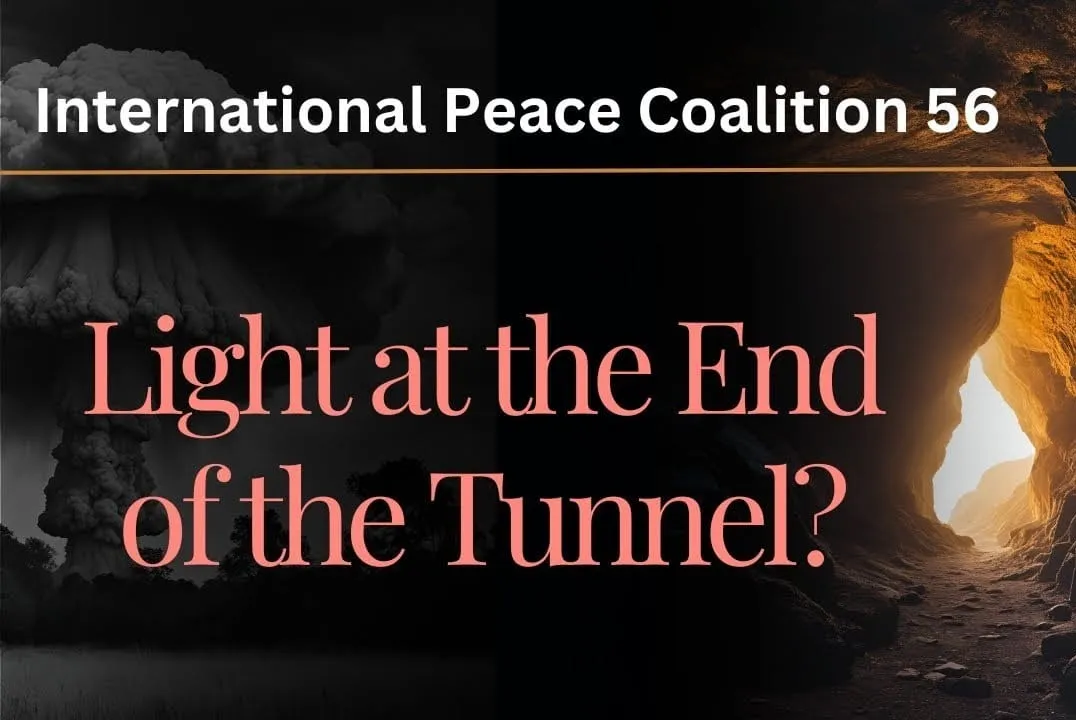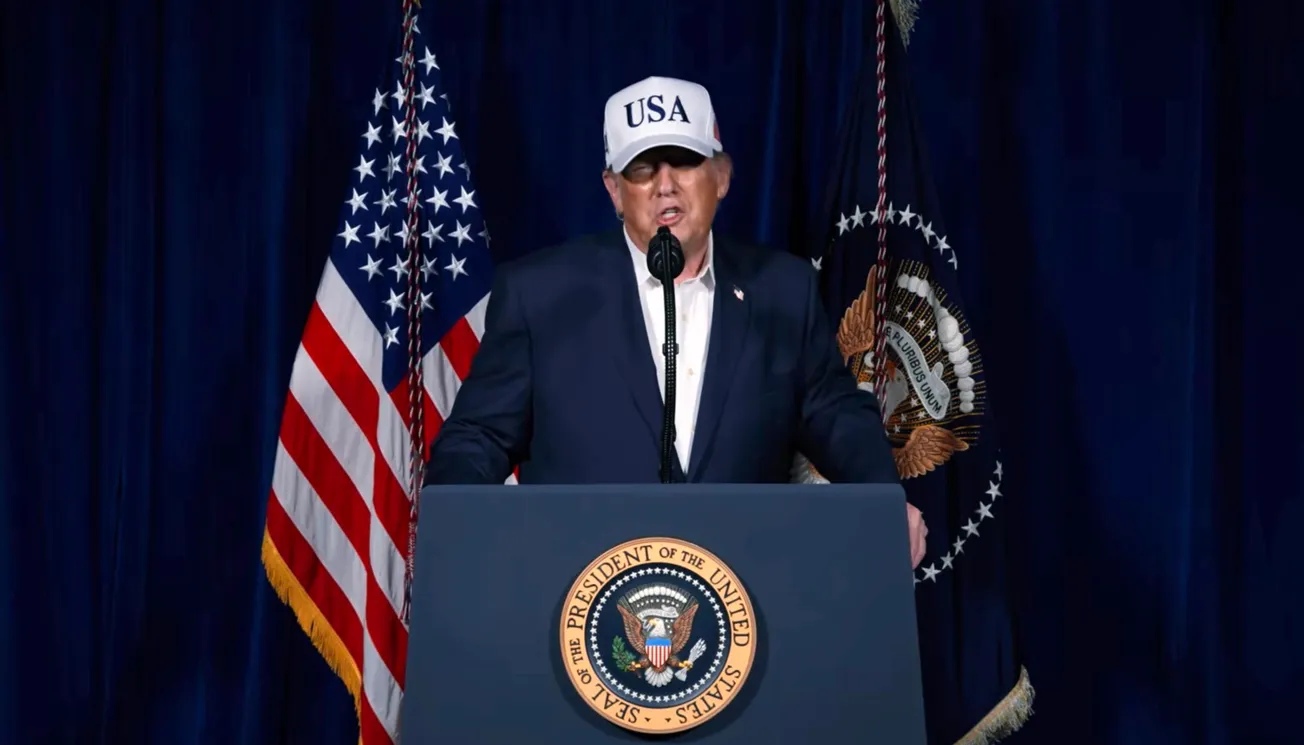“Our task is as urgent as it ever was, and getting more urgent by the hour. But I think that the light at the end of the tunnel is there, because we can see how the majority of nations are moving towards a new paradigm based on completely different principles. And therefore I think we are absolutely on the right track in what we are trying to do.” —Helga Zepp-LaRouche
International Peace Coalition 56 Opening
Today’s 56th consecutive meeting of the International Peace Coalition (IPC), convened in the midst of a dire strategic crisis with (literally) demented leadership in the West beating the drums for war, nonetheless featured several members of the Schiller Institute expressing their firm conviction that there does exist an opportunity to shift the world in a new, positive direction.
Helga Zepp-LaRouche, founder of the Schiller Institute and initiator of the IPC, opened the proceedings by painting a very bleak picture of the situation in Europe, but very quickly contrasted that with excellent developments happening in both Russia and China. In Europe, the EU leadership is setting a course for disaster: Ursula von der Leyen—a notorious war hawk—will probably be re-elected as President of the European Commission. But worse, the new High Representative for Foreign Affairs and Security Policy will likely be Kaja Kallis, Prime Minister of Estonia, a more disgusting war hawk than von der Leyen, or her predecessor Josep Borrell; she’s an extreme Russophobe, who openly advocates for splitting Russia into many pieces. On the other hand, Russia and China, the two most prominent voices of the Global Majority, are charting a different course.
Two weeks after Russian President Vladimir Putin introduced his Eurasian peace proposal before Russian Foreign Ministry leaders, President Xi Jinping of China delivered the keynote address today to the Conference Marking the 70th Anniversary of the
Five Principles of Peaceful Coexistence in Beijing. Zepp-LaRouche characterized the Five Principles as the basis of the Non-Aligned Movement (NAM). Her late husband, Lyndon LaRouche, with his 1975 proposal for an International Development Bank, played a major role in shaping the final resolution of the 1976 Colombo, Sri Lanka summit of the NAM, a conference which was devoted to ending colonialism and imperialism. In his address today, President Xi presented his vision for a new paradigm, which not only overlaps that of Putin’s, but at the same time is in affinity with Zepp-LaRouche’s Ten Principles of a New International and Security and Development Architecture. These developments demonstrate that there is indeed “light at the end of the tunnel.”
Dr. George Koo, a U.S.-China policy expert and Chairman of the Burlingame Foundation, expressed his disappointment at the “complete lack of coverage in the media of Putin’s proposal for peace.” His question to the IPC was: How can we more effectively bring this proposal to the attention of especially American politicians in Washington, D.C.? These politicians are “playing with fire and are approaching the ignition point, and don’t seem to understand or appreciate it.”
Prof. Steven Starr, a nuclear weapons expert from the University of Missouri, after stating the truism that “the first casualty of war is truth,” sounded the alarm bells that the Russian Ministry of Defense has directly accused the U.S. of complicity in targeting the ATACMS missile attack at the beach in Sevastopol, and that Russian Foreign Minister Lavrov has said that Russia is no longer at peace with the U.S. Russia is likely to start shooting down U.S. drones, according to Starr, something that didn’t even occur during the Cold War was the U.S. involved with direct attacks on the Russian homeland. Why is this happening? Because Russia is winning. Echoing, in a sense, the question posed by Dr. Koo, Starr asked the question: How do we get through to the public the danger of this crisis?
Zepp-LaRouche, in answer to Starr’s question, made the point that the purpose of the IPC is to do exactly that: not only alert the public to the danger but offer real solutions to the crisis—and it’s working. Putin’s peace proposal, for example, is a reflection of the Ten Principles. What the IPC must do immediately is “intensify the process of discussion, especially among those people who do understand why this is so dangerous; why Putin is absolutely correct when he says we are just at the point of no return.”
Jose Vega of the Bronx, a LaRouche independent candidate for the House of Representatives (CD-15), began by apologizing to the IPC participants for the embarrassment of the June 27 U.S. Presidential debate. Despite the debate, and the loss in the Democratic primary of “progressive” candidate Jamal Bowman to AIPAC’s $25 million candidate George Latimar, Vega expressed complete optimism about the future. He made the point that elections don’t begin or end on Election Day: “Election Day is when people decide to elect themselves to take back their government and become an electoral body.” And even though the mobilization by the Bowman campaign was totally inept—telling campaign workers to avoid discussing real issues like the genocide in Gaza—the good news is that hundreds of young people from around the country participated in the effort, and may now be willing to listen to the Vega and Sare for Senate campaigns, and their insistence that the path to victory is talking about real issues and is telling people the truth.
Jacques Cheminade, a long-time leader of the LaRouche movement and President of the Solidarité et Progrès political party in France, began by explaining why he and his associates have decided to run as candidates in the French legislative elections. According to Cheminade, the situation in France is “Orwellian,” with all three major parties supporting the war in Ukraine while claiming they are for peace—peace means war. They are using their campaigns as a platform to confront other candidates on the issue of peace through development in collaboration with the Global South. Cheminade is optimistic that despite the ongoing political chaos in France, “from a bad situation, can come a much higher sense of good,” but that requires that we “fight, fight, fight every day, and sometimes every night.”
Tim Rush, of the Schiller Institute, gave a report on a series of Capitol Hill meetings with senior staff members from eight different Senate and House offices. The irony, according to Rush, is that the meetings were set up courtesy of Ukraine and NATO, by putting members of the U.S. Congress on the latest Ukrainian “[hit list]"(https://texty.org.ua/projects/112617/roller-coaster/)—every member who voted against funding for the Ukraine war—as “information terrorists” or “Putin propagandists.” Briefed on the urgency of negotiations to stop the drive to nuclear war, for the most part there was “very significant engagement” and openness.
In her closing remarks to the proceedings, Helga Zepp-LaRouche stressed that any change of candidates in the U.S. Presidential election would not make a difference. The problem is that the influence of the military-industrial complex over politics is very powerful in both the U.S. and Europe, and people have been brainwashed into believing that military spending benefits the economy, when in fact it is a drain on the economy and only benefits the shareholders of the defense corporations. Change has to come from the people, and the biggest challenge is to help people make a “mental leap” to conceptualize a new paradigm based on nation-states working in harmony for the benefit of the “One Humanity.” She called on all IPC participants to get the OKV resolution out to their networks, and build the ranks of the IPC so that we “have a voice that cannot be neglected.”





